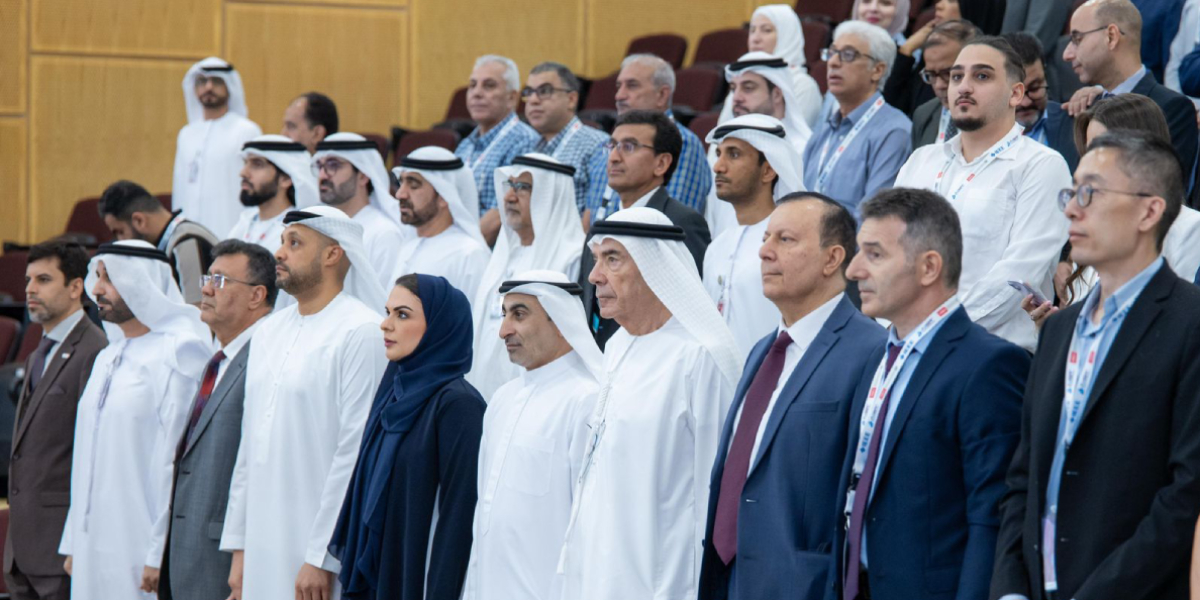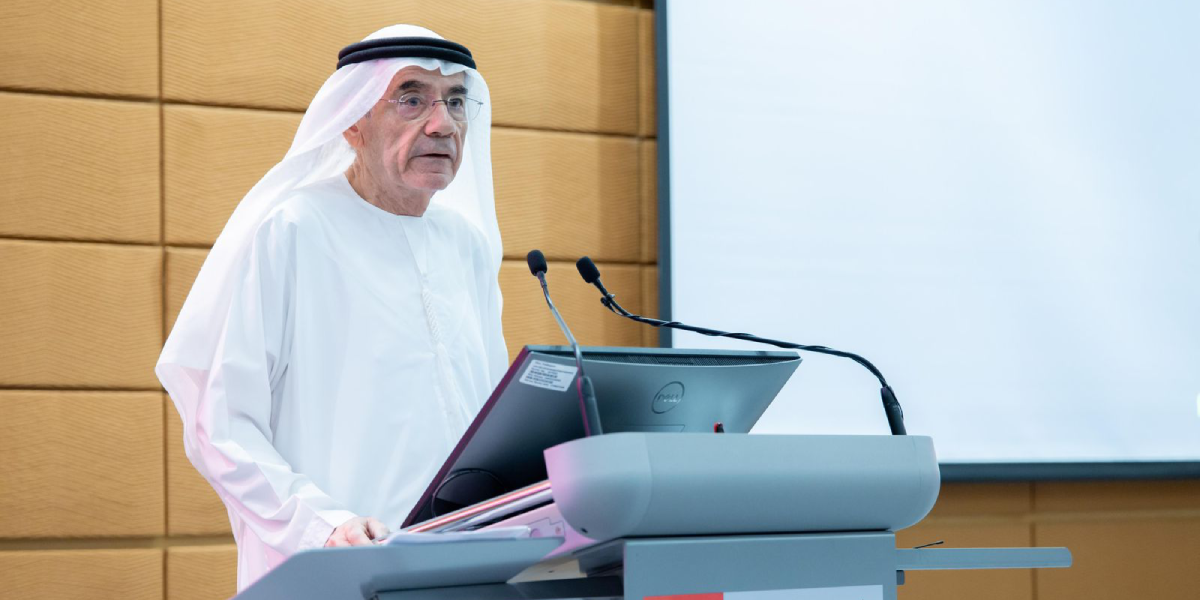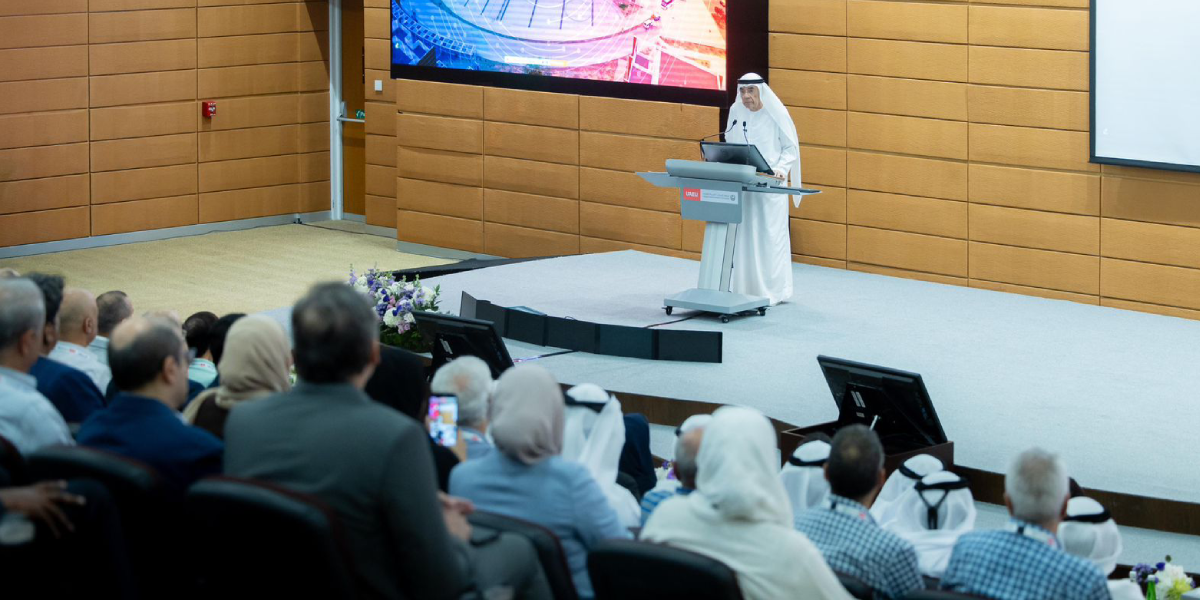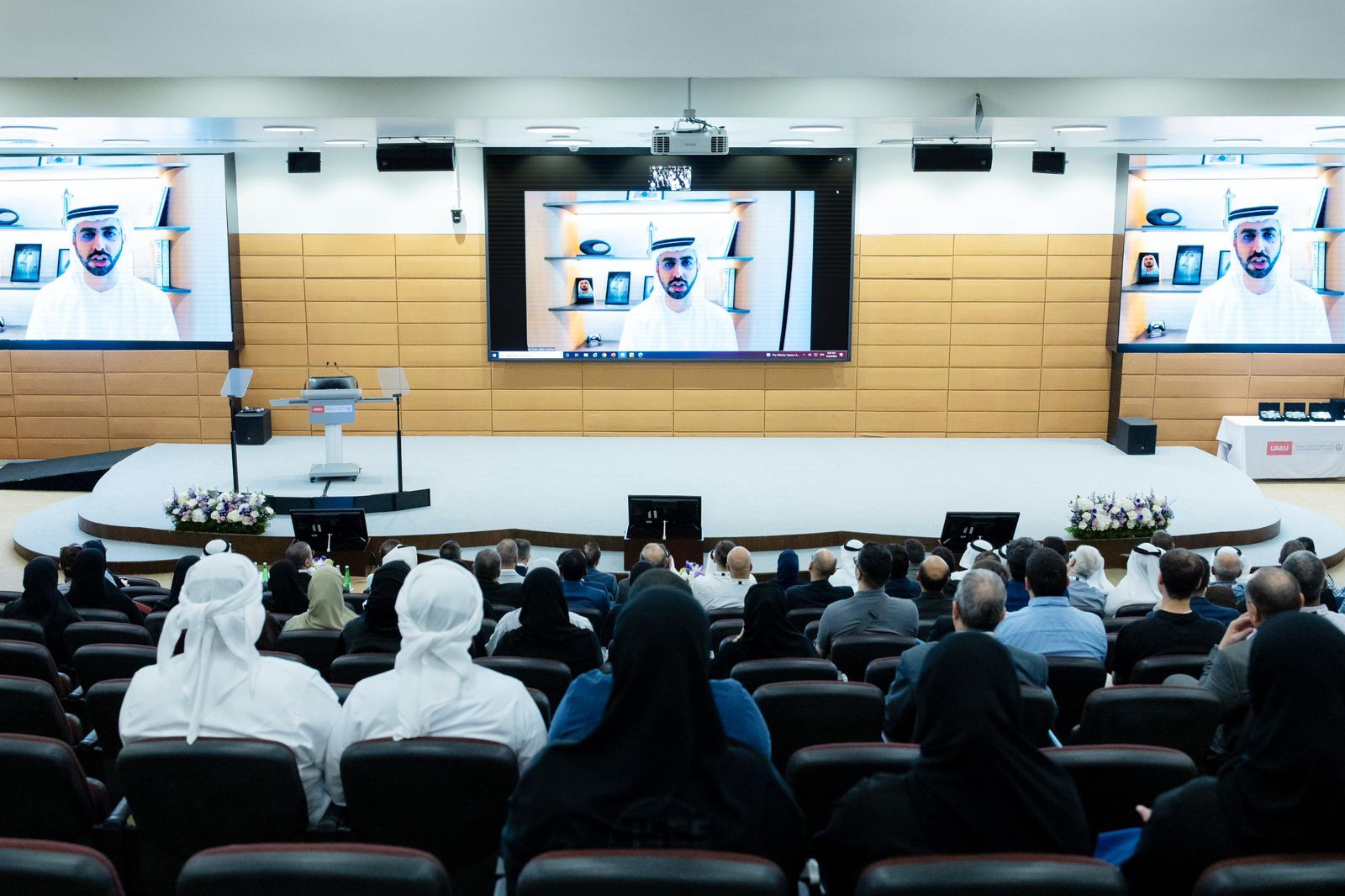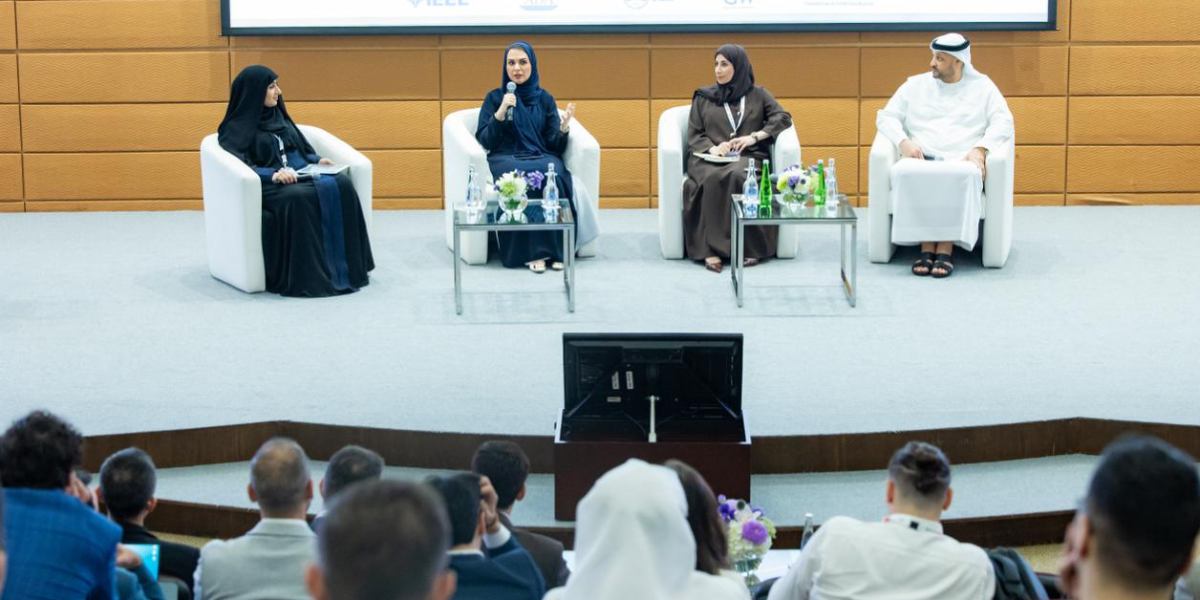UAEU Hosts the 19th International Conference on Application of Information and Communication Technologies “IEEE-AICT 2025”
Thu, 30 October 2025
Featuring Global Scholars and Researchers
The United Arab Emirates University (UAEU) hosted the 19th International Conference on Application of Information and Communication Technologies “IEEE-AICT 2025”, in the presence of H.E. Zaki Anwar Nusseibeh, Cultural Advisor to the UAE President and Chancellor of United Arab Emirates University, with the special participation of H.E. Omar Sultan Al Olama, Minister of State for Artificial Intelligence, Digital Economy and Remote Work Applications. The conference gathered a distinguished selection of global scholars, researchers, and innovators and is being held from October 29th to 31st, 2025, at the Crescent Building on the university’s Al Ain campus.
In his opening address, H.E. Zaki Anwar Nusseibeh noted that this conference represents a leading global platform for the exchange of knowledge and ideas that contribute to shaping the future of human development. His Excellency emphasized the UAE’s ongoing efforts, under its wise leadership, to transform various sectors towards sustainable development and positive change, building a stable and prosperous future through ambitious national strategies in artificial intelligence, digital government, and sustainable development. These efforts reflect the nation’s strong belief in the power of technology to advance human capabilities and strengthen social values.
His Excellency further added that UAEU is proud of its vital role as the nation’s “flagship university,” continuing to support scientific development and the advancement of knowledge in the UAE. He described the university as a bridge between knowledge and prosperity one that fosters creativity and research. He affirmed that UAEU remains committed, through its researchers and students, to building a solid foundation for the future based on technology, scientific excellence, and deep-rooted social and environmental responsibility values that define its academic and research mission.
In his remarks, His Excellency Omar bin Sultan Al Olama, Minister of State for Artificial Intelligence, Digital Economy and Remote Work Applications, outlined the United Arab Emirates’ journey in advancing the artificial intelligence sector. He noted that, within eight years, the nation has moved from an experimental phase to ranking among the world’s top five in this field, driven by a comprehensive national strategy launched in 2017 and structured around three main phases: (1) building the ecosystem and infrastructure; (2) an adoption phase that delivered substantial savings across sectors such as energy, oil, and airports; and (3) a global leadership phase beginning in 2026.
H.E. Al Olama emphasized that the UAE’s AI vision focuses on empowering people and enhancing their productivity rather than replacing them with technology. He explained that the country aims to improve the quality of life for all residents, enable around ten million people to achieve productivity on par with leading economies, and position the UAE as an exporter of AI solutions. He affirmed that this vision extends a humanistic renaissance—where knowledge once again becomes multidisciplinary and is propelled by innovation and creativity.
In his address, His Excellency Omar bin Sultan Al Olama, Minister of State for Artificial Intelligence, Digital Economy and Remote Work Applications, outlined the United Arab Emirates’ journey in developing the artificial intelligence sector. He noted that within eight years the nation progressed from a pilot phase to ranking among the world’s top five in this field, enabled by a comprehensive national strategy launched in 2017. The strategy comprises three key phases: building the ecosystem and infrastructure; an adoption phase that delivered significant efficiencies in sectors such as energy, oil, and airports; and a global leadership phase set to begin in 2026.
H.E. emphasized that the UAE’s vision for AI is centered on empowering people and enhancing productivity—not replacing people with technology. He explained that the country seeks to improve the quality of life for all residents, enable around ten million people to achieve productivity on par with major nations, and position the UAE as an exporter of artificial intelligence. He affirmed that this vision extends the human renaissance, with knowledge once again becoming multidisciplinary and driven by innovation and creativity. The opening session of the conference shed light on the vital role of artificial intelligence in guiding government and social development, enhancing institutional capabilities to anticipate and shape the future. A panel discussion, titled “Artificial Intelligence and the Empowerment of Government Futures: From Vision to Global Leadership,” explored mechanisms for accelerating the adoption of advanced technologies in government operations and transforming national initiatives into world-class, impactful models.
The panel featured H.E. Eng. Amal Abdulrahim, Assistant Undersecretary for the Support Services Sector and Chief AI and Innovation Officer at the Ministry of Climate Change and Environment (UAE); H.E. Dr. Farida Al Hosani, Deputy CEO of the Global Institute for Disease Elimination (GLIDE), Abu Dhabi; and Dr. Rami Beiram, Associate Provost for Research at United Arab Emirates University.
Among the sessions was a keynote speech by Prof. Steve Liu, Associate Vice President of Research and Professor of Computer Science and Machine Learning at Mohamed bin Zayed University of Artificial Intelligence (MBZUAI), UAE, and Fellow of the Institute of Electrical and Electronics Engineers (IEEE), titled “LLMs for NextG Communication Networks: Fundamentals, Key Techniques, and Future Directions.” His presentation highlighted the integration between artificial intelligence and the future infrastructure of communication networks.
The conference serves as a prestigious global scientific platform for experts and specialists to review the latest findings in basic and applied research in the field of information and communication technologies. Its sessions focus on leveraging artificial intelligence and emerging technologies to advance development and societal goals.
Do you find this content helpful?
عفوا
لايوجد محتوى عربي لهذه الصفحة
عفوا
يوجد مشكلة في الصفحة التي تحاول الوصول إليها


